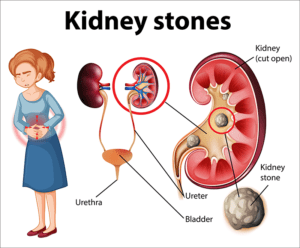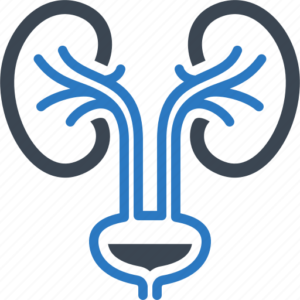A Complete Overview of Investigating Efficient Kidney Stone Treatments
Introduction:

Kidney stones can be a source of immense discomfort and concern, necessitating prompt and effective treatment. Thankfully, advancements in medical science have provided a multitude of treatment options to manage this condition. In this blog, we’ll delve into various treatment methods available for kidney stones, offering insights from an experienced Kidney specialist based in Lucknow.
1. Conservative Management:
For individuals with small kidney stones unlikely to cause complications, conservative management strategies may suffice. These strategies typically include:
– Pain Management: Over-the-counter pain relievers such as ibuprofen or acetaminophen can alleviate discomfort associated with kidney stones.
– Hydration: Adequate fluid intake, particularly water, is encouraged to help flush out small kidney stones from the urinary tract.
– Dietary Modifications: Patients may be advised to make dietary changes, such as reducing sodium and oxalate intake, to help prevent the formation of new kidney stones.
2. Extracorporeal Shock Wave Lithotripsy (ESWL):
ESWL is a non-invasive procedure that employs shock waves to break up kidney stones into smaller fragments. This fragmentation facilitates easier passage of the stones through the urinary tract, making it an effective treatment option for small to medium-sized stones located in the kidney or upper urinary tract.
3. Ureteroscopy:
Ureteroscopy involves the insertion of a thin, flexible scope through the urethra and bladder to access the ureter or kidney. Once the stone is visualized, it can be removed or fragmented using specialized instruments. Ureteroscopy is particularly effective for treating medium to large stones located in the ureter or kidney.
4. Percutaneous Nephrolithotomy (PCNL):
PCNL is a minimally invasive surgical procedure utilized to remove large kidney stones or stones that are challenging to access through other methods. This procedure involves making a small incision in the back, through which a nephroscope is inserted to directly visualize and remove the stone fragments.
5. Open Surgery:
In rare instances where other treatment options prove ineffective or unsuitable, open surgery may be necessary to remove large or complex kidney stones. This procedure entails making an incision in the back to access the kidney and manually remove the stones.
Conclusion:
With the guidance and expertise of a trusted urology doctor in Lucknow, individuals can explore various treatment options for kidney stones tailored to their specific needs and preferences. Whether through non-invasive methods like ESWL and ureteroscopy or more invasive procedures like PCNL and open surgery, effective management of kidney stones is achievable. By understanding the diverse treatment methods available, patients can make informed decisions to alleviate symptoms, prevent complications, and enhance their overall quality of life.
READ ABOUT:- Home Treatments for Kidney Stones
